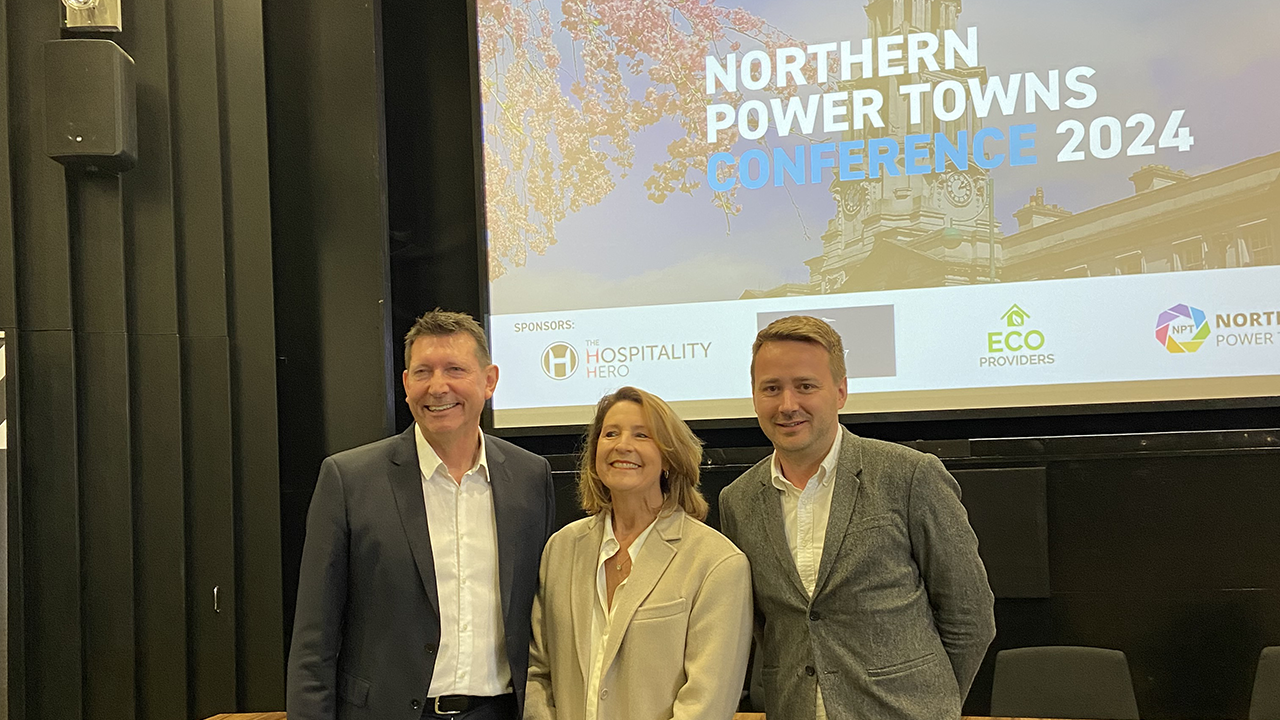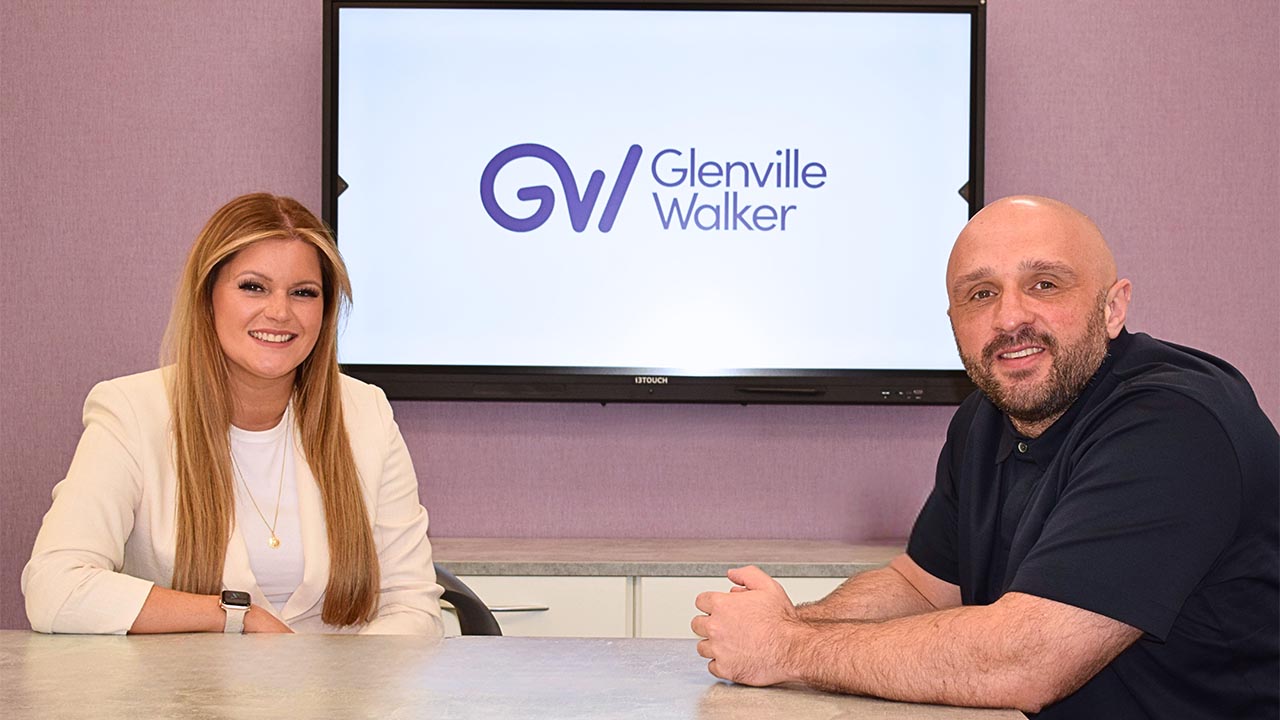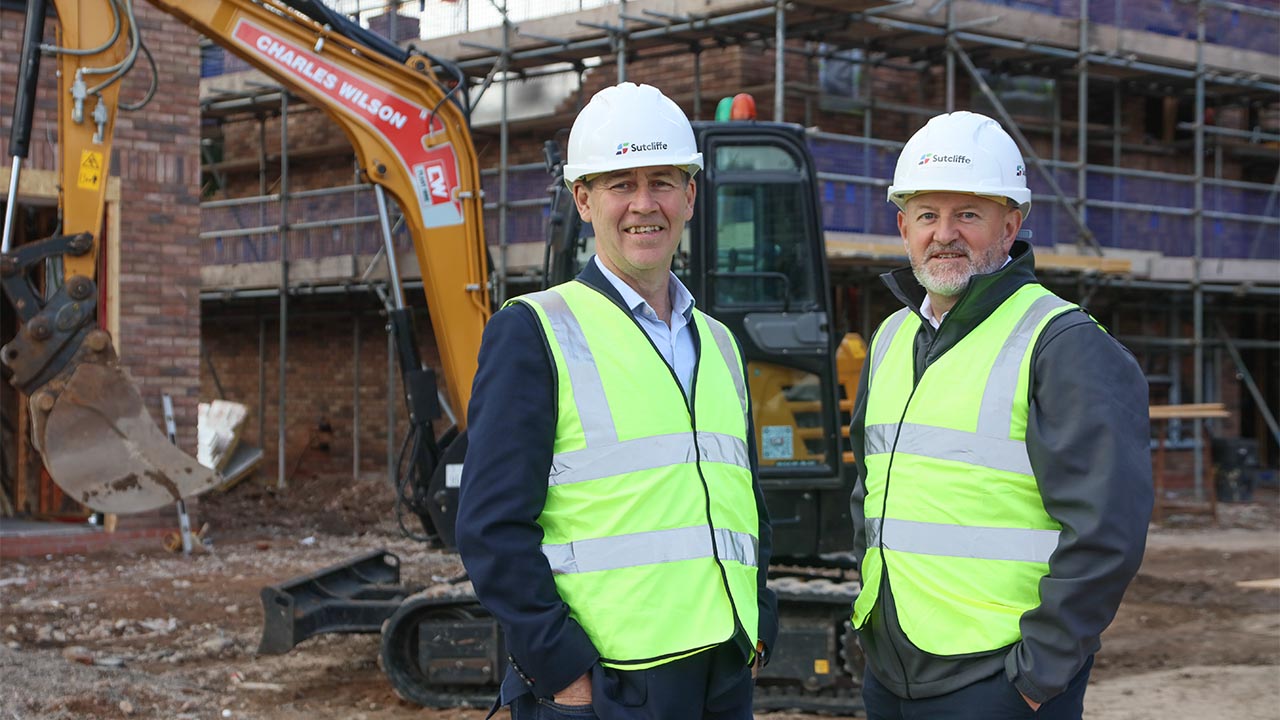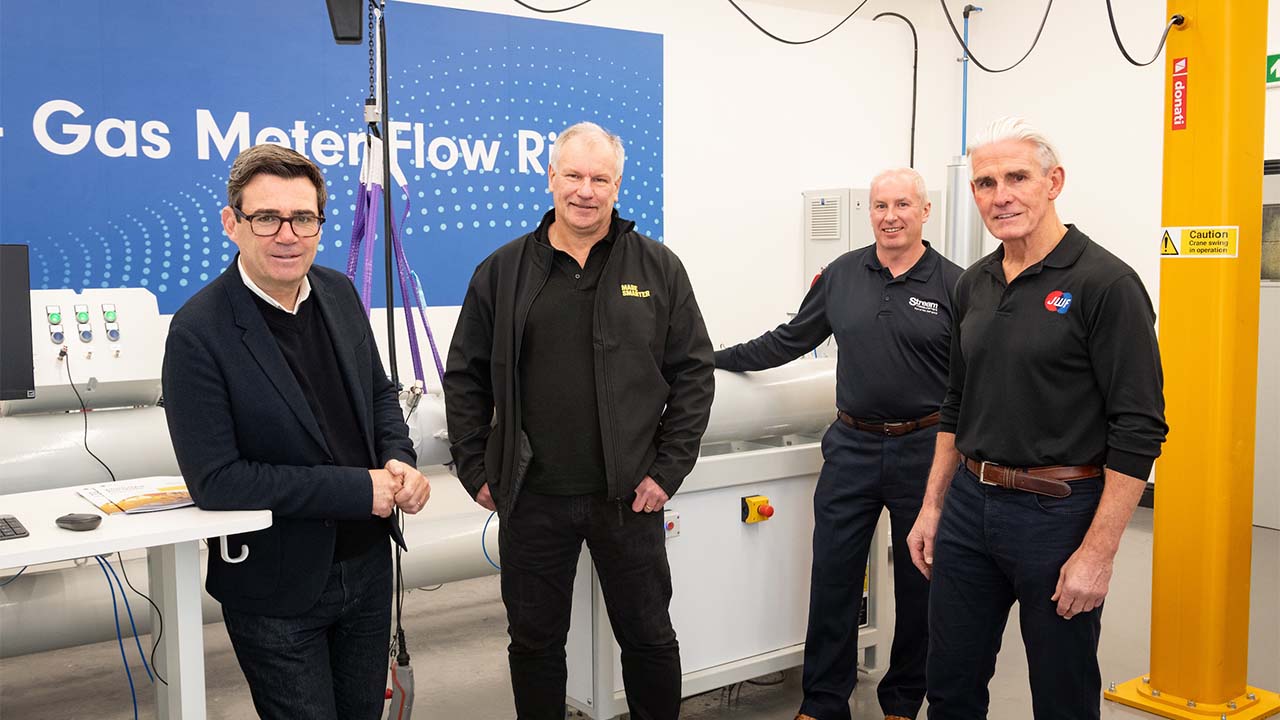On Friday 12th July 2024, Downtown in Business, in collaboration with the Northern Power Towns Group, hosted a dynamic half-day conference at the fantastic Engine Rooms at Birchwood Park, Warrington.
This unique event, sponsored by Story Homes, Eco Providers and Hospitality Hero, brought together industry leaders in various fields, local authority representatives and private sector partners.
The Northern Power Towns Group is a leading voice of business and civic leaders across the North. Comprising public and private sector partners, including councils, businesses, and community organisations, the group works to foster inclusive economic growth in the North.
As Professor Steven Broomhead MBE, Chief Executive of Warrington Borough Council who kindly joined us to help chair this year’s conference put it, the Northern Power Towns Group is about ‘Local Councils coming together to discuss economic growth.’
The Northern Power Towns conference provided a platform for engaged partners across the North to engage in discussions and debates on the opportunities and potential of regional towns. With a focus on what the result of the recent general election and a new labour government might mean for Northern Towns and effective public and private partnership working, attendees explored strategies to address local and regional challenges and make tangible improvements for communities.
Chairing the conference, Frank McKenna, CEO of Downtown in Business, in his welcome speech, underscored DIB’s commitment to promoting collaboration and partnership in the North. He reiterated the importance of fostering genuine partnerships between the private and public sectors to drive regional economic growth in Northern Towns.
The event featured keynote talks and panel discussions from a range of guest speakers and provided attendees with an opportunity to engage in stimulating discussions with leaders from across the region. Insights from industry experts offered invaluable perspectives on economic trends, business advice, and strategies for navigating social and economic changes.

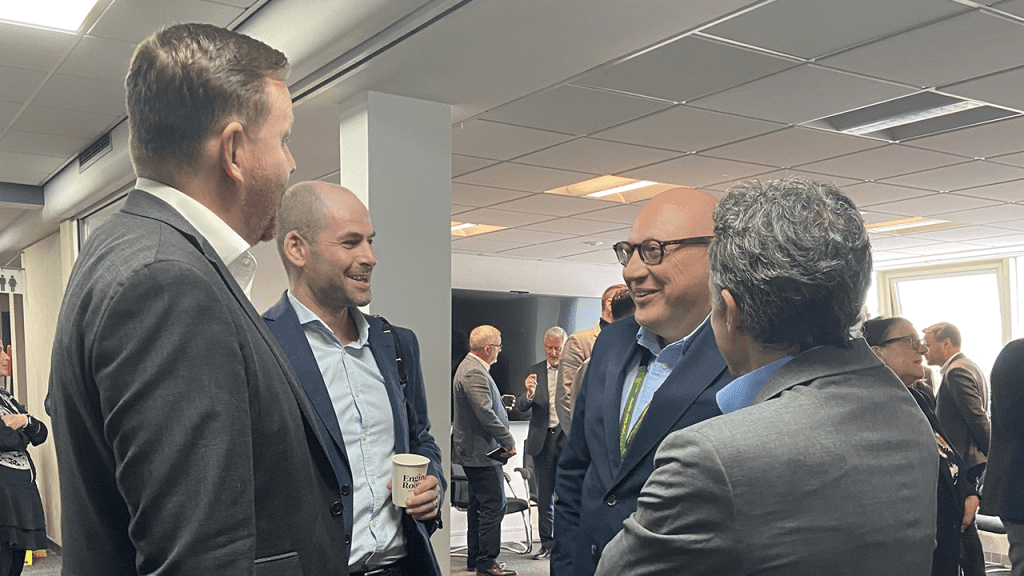
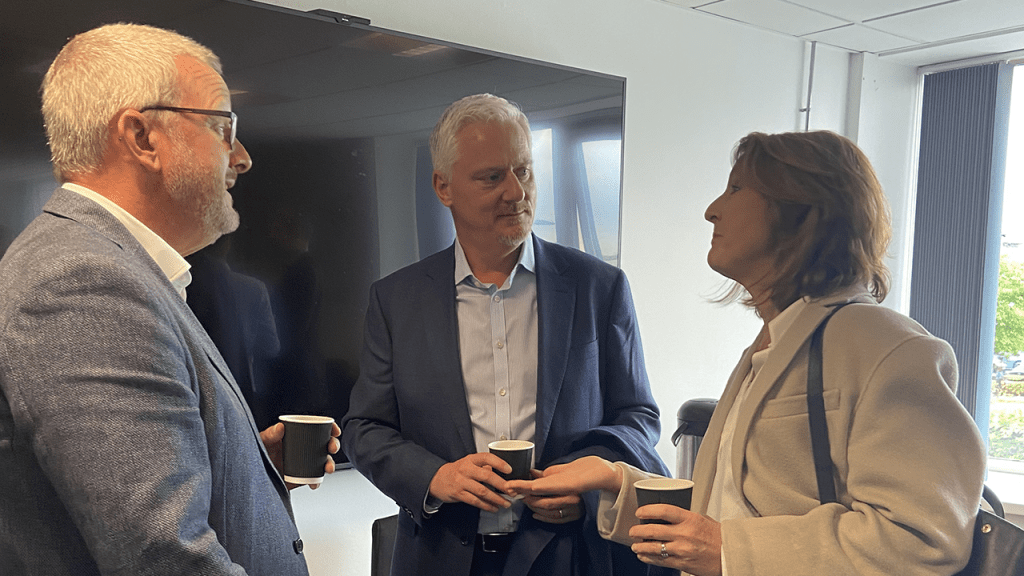
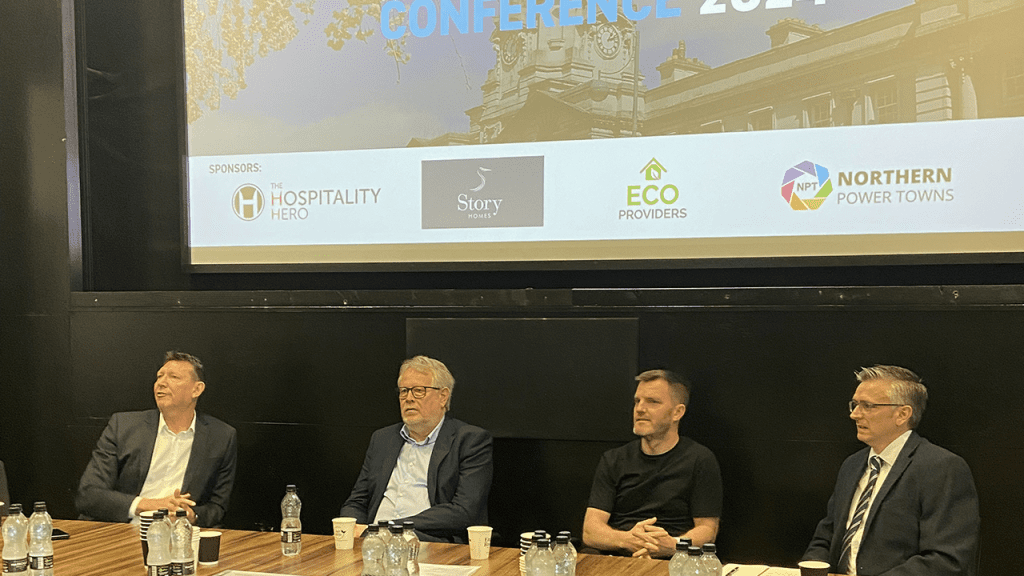

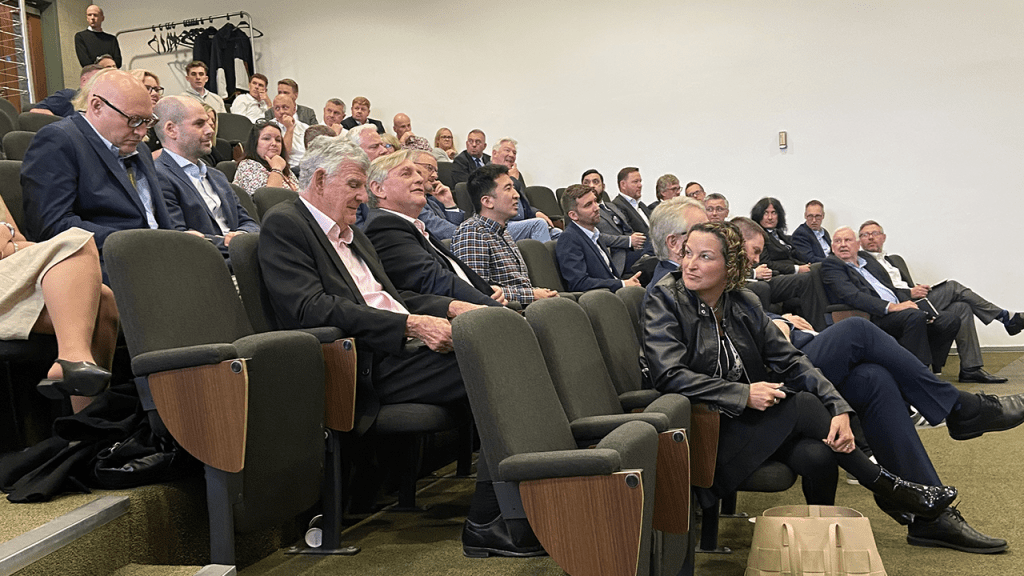
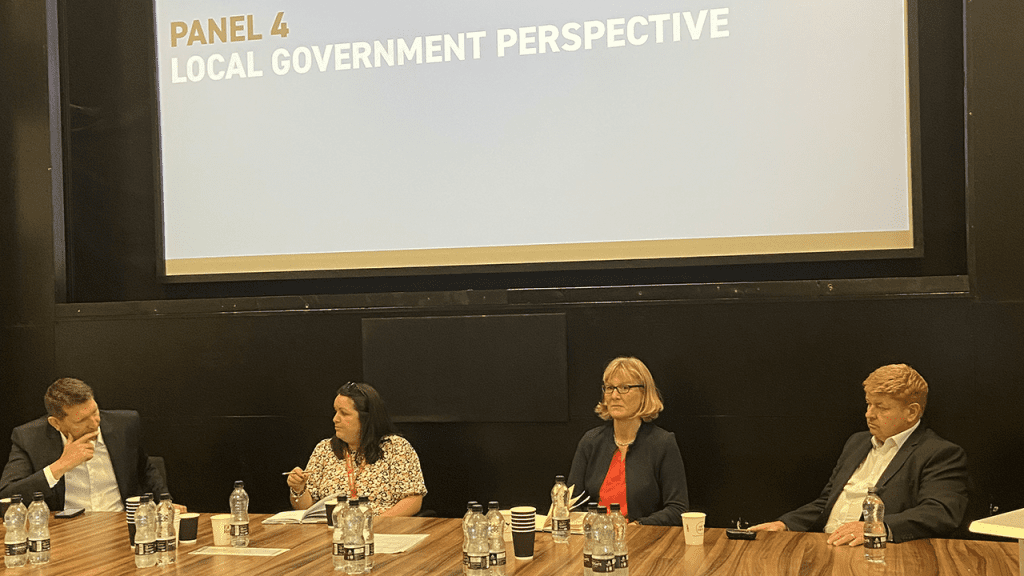
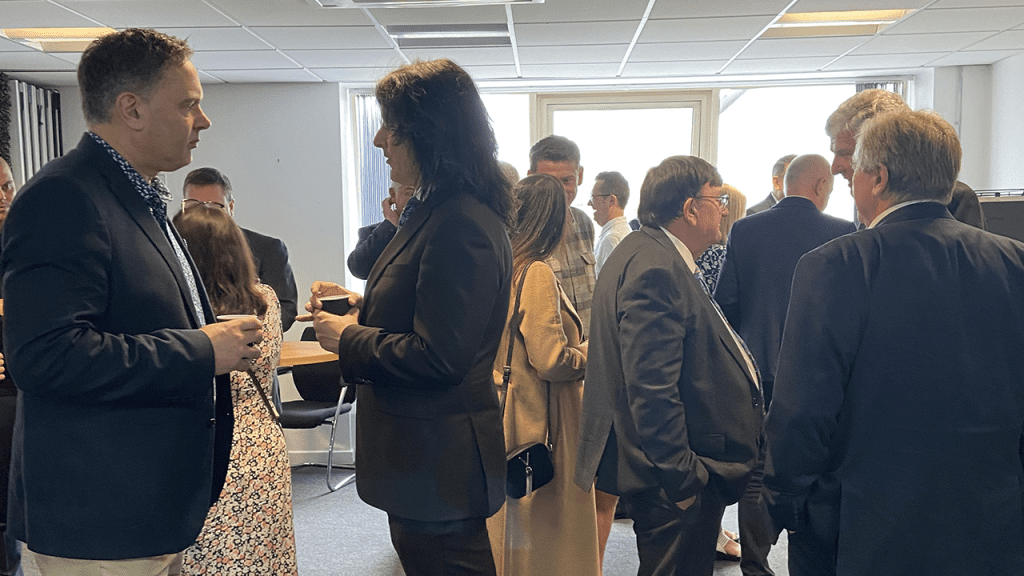
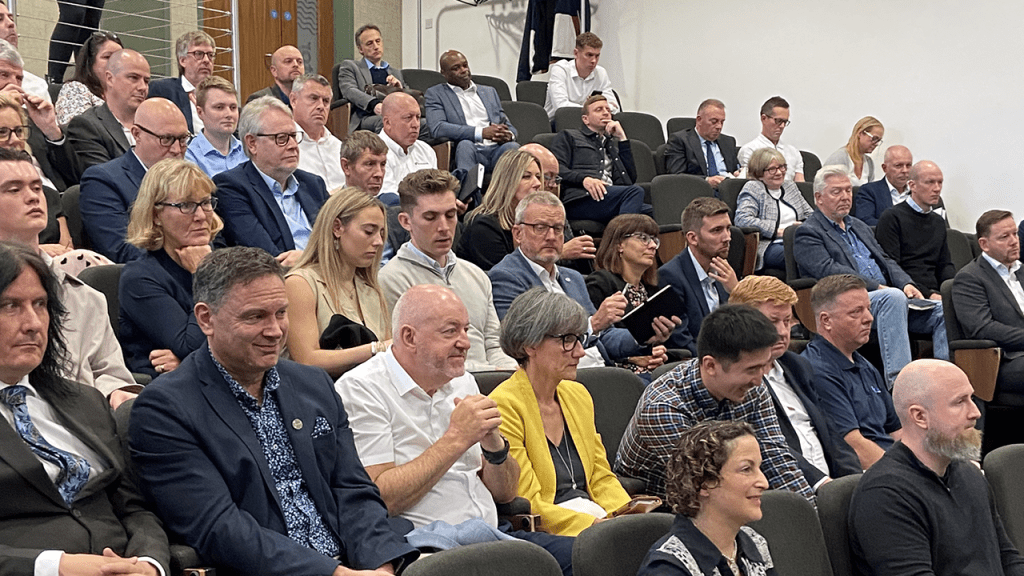
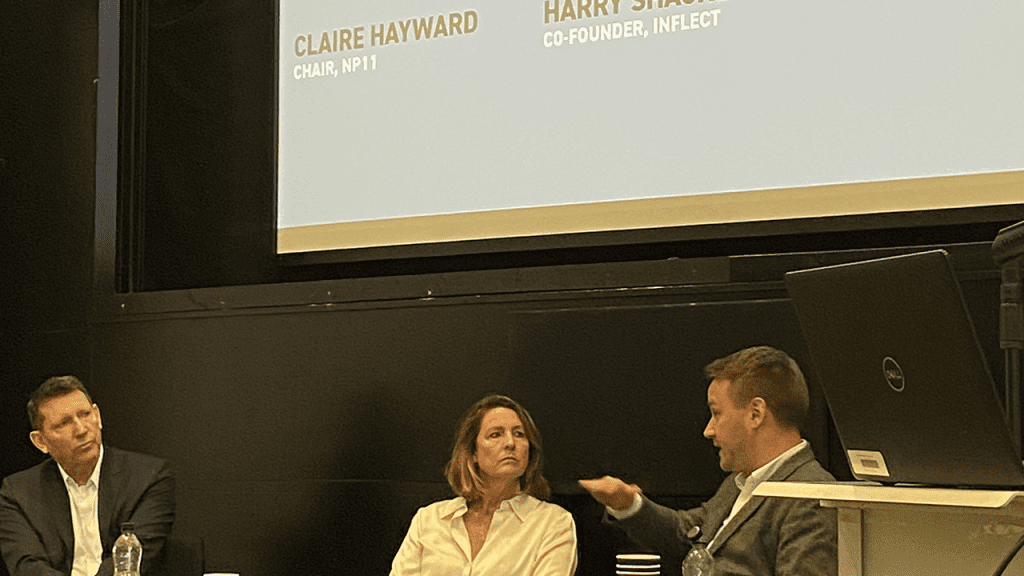
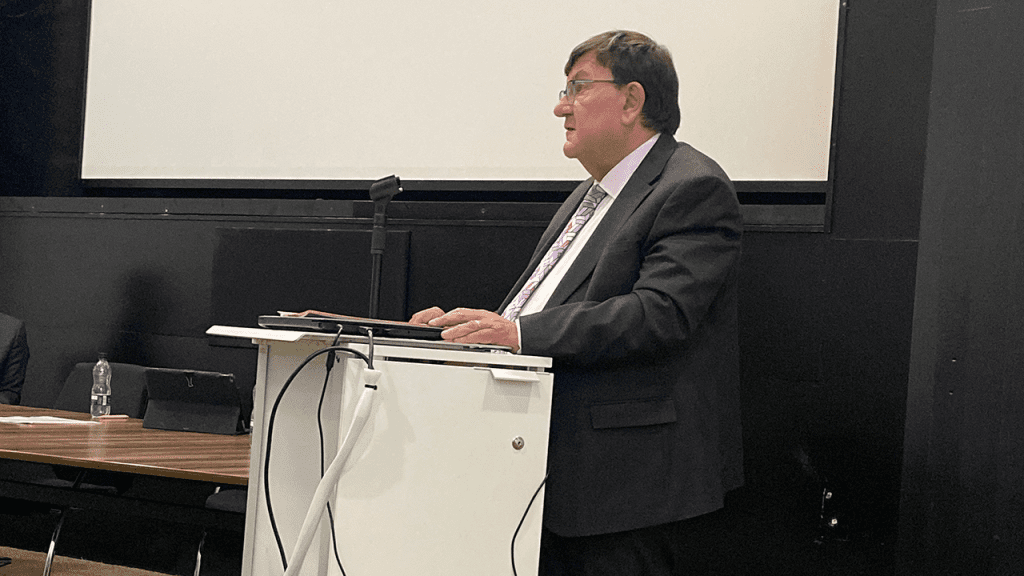

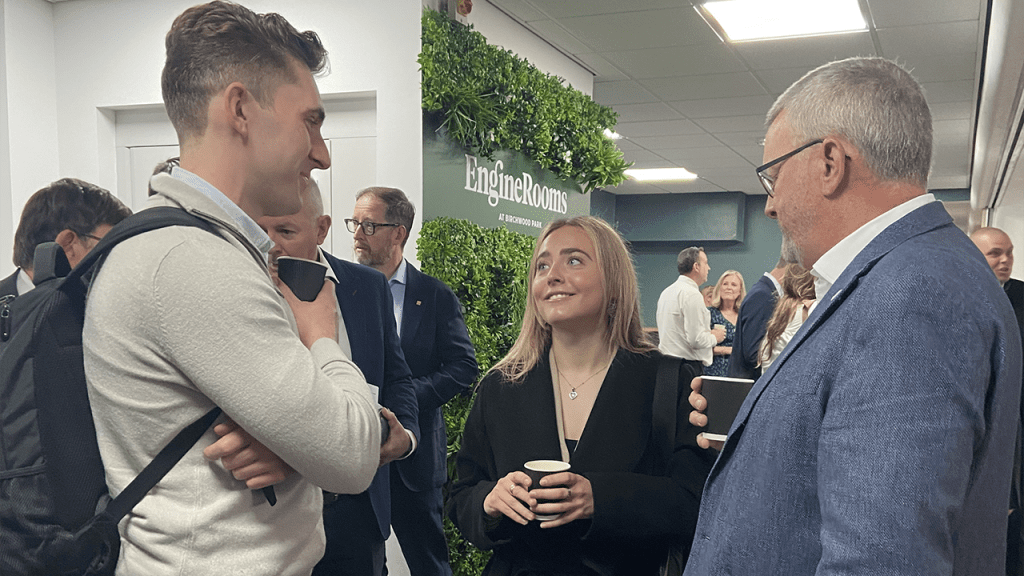
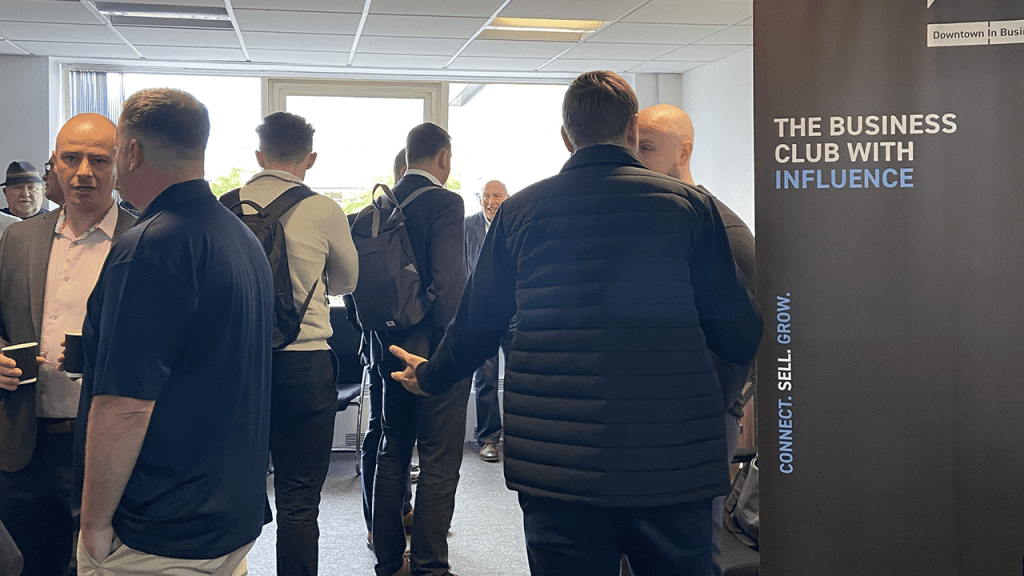
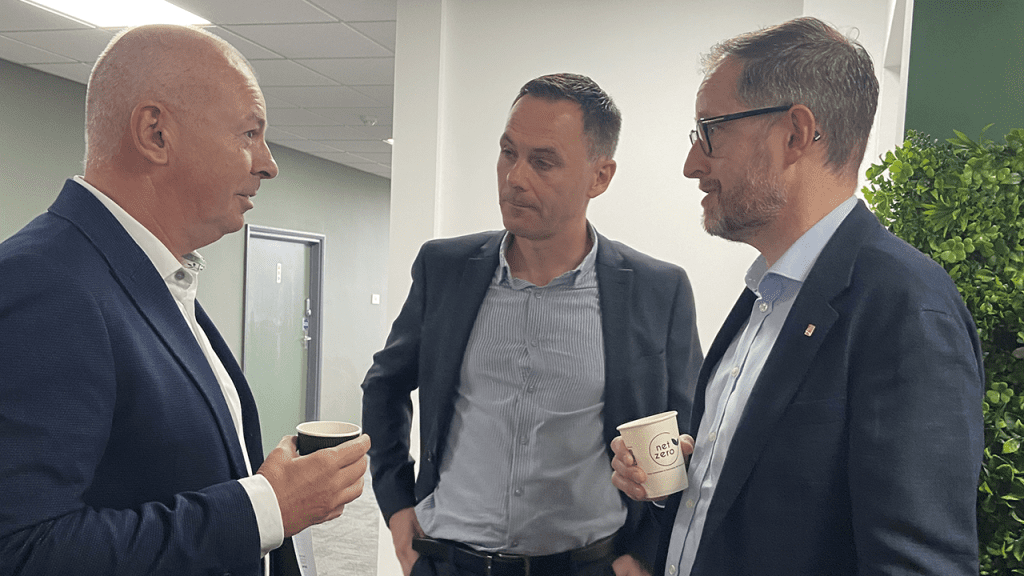



Welcome to the Conference
Kicking off the conference, in his keynote talk, Steven Broomhead shared his initial thoughts on Labour’s victory and what they could represent, emphasising the, so far, positive feeling around the new government amongst businesses and how they appear to have hit the ground running.
He none the less reiterated the urgency of addressing local and regional challenges, pointing out that the government has inherited a list of deep-seated problems and economic growth stagnated with taxation at a 70 year high.
He believes the government is faced with difficult decisions around investment and spending to reduce the national debt level. With many councils facing 114 notices and bankruptcy, he feels a key question is can councils effectively respond to the government’s growth agenda? For example, are net zero targets and compulsory affordable housing targets realistic?
Steven expressed more optimism however about the prospects of further devolution under a Labour government with the speedy consultation of regional mayors. With 50% of England now under some form of devolution model, and only Cheshire and Cumbria that lack any devolution deals, Steven feels that Growth, stability and moderation are truly becoming the mantra of this new government.
Steven also commended the changing up of parliament and the fact it is already so much more diverse and representative than ever before.
New Government – What Next?
Our first Panel talk of the day, aptly named ‘New Government – What Next?!’ then featured Clare Hayward, acting chair of The NP11 and Harry Shackleton – co-founder of Inflect.
As a Strategic Communications & Public Affairs Consultancy focused on delivering positive change through promoting devolution – Inflect works in and around UK politics, increasingly with metro mayors and combined authorities.
Harry shared his hope for the future under a new government, highlighting the importance of maintaining a collective effort to support the thriving of towns across the North.
“Collaboration can’t be siloed into small mayoral regions; we need to sort out things like water and energy on a much larger scale.”
When asked what he feels the government need to do to recover the confidence of the people, he reminded us that “what we want doesn’t really change, and that’s for the North to get its fair share of investment”,
He feels the government needs to focus on drumming up Global investment, to bring confidence back to Briton’s – “For example, house building is in crisis, the government needs to deliver on promises where previously the national government backed away from targets”
Other areas he feels require attention are Innovation and Technology – “we need to champion these areas, not just in Oxford where amazing things are happening!” – and Trade. Harry believes that improving our productivity conversations around trade and forming more global links around trade is vital since “we didn’t get a fair deal after Brexit” in his opinion.
He made the interesting point that, to other parts of the world, the UK probably comes across as quite a stable country and we need to capitalise on that opportunity.
Clare Hayward reiterated this notion that there is currently a real desire for change and a need for transformation in the UK. The NP11 working in partnership across the public and private sectors, with local and national government and with partners throughout the North, works with over 1000 stake holders across the North.
Clare picked out some key issues she feels we should be addressing, a considerable issue being that the North is still underinvested per capita compared to London and the South. She feels we need to focus on trade and investment to raise the profile of the North.
She pointed out “We’re here in Warrington, which could contribute an enormous amount considering its location in the North” and that despite this, it is still relatively unknown and underappreciated as an area.
She feels that Strategic transport and connectivity could bring in 180 million more to GDPA. We still haven’t committed to HS2, and Clare believes if we want to compete globally, we need more investment in transport.
Private Sector Perspective
In the second Panel of the day, entitled ‘Private Sector Perspective’, we welcomed Tim Heatley, managing Director of Capital and Centric, John Winstanley, Director of Story Homes and Rob Mason Managing Director of Ion Developments.
Capital & Centric are social impact developers, investors and operators who focus on turning unloved spaces into communities with super sustainable, homes and workspaces.
As their Director, Tim Heatley is always thinking about how we can utilise government spending and drum up investment for housing. Rather than having lots of smaller developments, he wants to see mass affordable housing built.
When asked what he is hoping devolved authorities will be given responsibility for? He explained how it was great to see how Labour has very quickly realised where the regional power lies and has shown they will be a listening government in consulting regional Mayors.
He would like to see them be given more authority over local services which would allow police, transport, health to start to work together more cohesively to build a community.
As a housing developer that has been building homes for over 35 years across the North and Scotland, Story Homes is another prime example of a company at the forefront of creating communities and positive change through housing.
Director John is looking for the government to provide a period of stability and some ‘quick wins.
He wants to see Lancashire move more quickly in implementing devolution since he feels authorities are currently somewhat competing against each other for funding and devolution deals. Instead, he wants to see mayors working together.
He explained that when creating developments and investing in housing you always need to “look at the cultural offering, people move for work but stay for the community”.
He made the point that the government might be looking to reinforce delivering affordable housing but what’s more important is how do you front fund infrastructure like schools etc? – “The government want affordable housing but how are they going to achieve this?”
John feels that there are changing attitudes towards development and local authorities are becoming more pro-development. Warrington is a prime example of a pro-growth authority.
However, John pointed out there is still the issue of the skills gap when it comes to the people we need to build homes, skilled traders are aging and reaching retirement, meaning the race is on to produce the next generation of workers.
While we have always had graduate schemes and internships John feels they are clearly not appealing enough for young people and we should go further to make construction attractive for young people – “If education is made fit for purpose, we can start to bring the skills through”.
Rob Mason of Ion developments agreed, explaining that this ties into immigration and that we should look to let enough skilled workers into the UK fill the current skills gap.
When it comes to devolution, Rob feels there is some confusion for developers like Ion working across multiple regions about the level of devolution in different areas and who has what power where – “In a combined authority trying to be fair across nine districts it makes things more difficult.”
He feels the idea of creating entire new towns is interesting but that it’s difficult to balance short-term growth against new towns and we need to focus on unclogging the issues with the schemes we’ve already got now before embarking on new housing schemes.
The Economy, Skills and Transport
In panel Three – ‘The Economy, Skills, and Transport’, we heard from Katie Day – Strategy Director & Deputy chief executive at Transport for the North and Sandra Rothwell managing director of Rothwell.
Transport for the North work with businesses and across political parties with a remit of advocating for better Transport for the North. They work with Local transport authorities to help with managing and investing in local transport networks such as investment in local roads, cycling, walking, and buses, and light rail.
They set out the case and priorities for connecting different economic clusters, ports, and airports across the whole of the North and have a ‘blueprint’ for road and rail investment to enhance strategic pan-Northern connectivity.
Katie believes that The North is starting to lead in delivering and shaping transport and that if we were better connected, we could unlock more regional economic potential.
There is gap in productivity predictions for the North since the economic crisis of 2008, which has more recently been made worse by pandemic.
She explained that since 2016, productivity growth in the North has been consistent with that of the rest of England, so the scale of economic opportunity in closing the productivity gap remains, yet public sector spending in the North remains lower than across London and the devolved nations, at an average £1,500 per capita.
Katie feels that if you have the right infrastructure both digital and roads, etc, you can grow an economy. Over 3 million people can’t get the education they need or the jobs they want because of poor transport.
Transport for the North is advocating for A transformed Northern economy by 2050. TFTN estimates this would make an additional £118bn GVA by 2050, support an additional 1m jobs, boost productivity by £6,000 per job, and close the productivity gap. It would also bring in £685bn private investment and lead to improved health, reduced worklessness and environmental benefits.
Katie wants to see more freight brought on to rail and work to decarbonise surface transport. She feels we need to think strategically about ports, airports etc and how we can decarbonise these and make them more environmentally friendly.
Sandra Rothwell is managing director of Rothwell, an economic consultancy specialising in innovative and disruptive approaches to growth.
She explained how the previous Gov had more of a belief in clustering economic growth in the cities which may or may not trickle down to nearby towns. Gross Value Added (GVA) in the largest cities in England is expected to grow at 2.2% annually on average compared to growth of 1.6% for towns. This, Sandra feels is one of the Dangers of an ‘M6 corridor’- that the growth only goes through, not to, the corridor!
Sandra also explained how most Northern Towns rely on the public sector, which typically accounts for over 20% of economic activity in Northern Power Towns.
Employment is growing faster in cities than towns, it is expected to have grown in cities at 1% annually between 2020 and 2023 – double the 0.5% growth forecast in towns. Manchester has seen the most employment growth at 3% year on year.
Katie gave a brief explanation of research by the Kellogg Foundation which advocates for development of the entrepreneurial ecosystem, i.e. create an environment where people want to do business and then identify and support entrepreneurs since we know human investments drive new economic growth. You must make it easy for entrepreneurs in your towns to set up.
Likewise investing in arts, culture and leisure is massively important since research shows that young people who have fond memories of their hometowns are more likely to return to that town when they’re ready to settle down. Successful communities create vibrant downtown environments where people want to be.
Sandra was quick to point out that devolution is not a silver bullet, but she believes with Local bespoke (and innovative) decisions at the right scale and the right level it will help – “regional problems require regional solutions”.
Local Government Perspective
In our final panel at the end of a jam-packed day of insights, we heard from three Local authority executives who gave their take on some of the issues raised in the panel discussions so far.
Mary Jefferson, head of regeneration and growth at St Helen’s Borough Council pointed out that many local councils and indeed the average person just wants reassurance. Local government is in a difficult place and the North has suffered from regional inequality for so long, it’s refreshing to hopefully be entering a period of change.
Alison Hatcher of Westmorland and Furness Council spoke on her perspective working in her local community. She explained there has been a significant amount of investment into Barrow, and yet youth unemployment is high in a place where they haven’t got enough labour. She therefore feels it can’t all be about connecting cities to each other, but also about connecting cities to rural areas and rural areas to rural areas and promoting local opportunities.
Steve Park, Director of Growth at Warrington Borough Council, reflecting on the days debates was pleased about the amount of common ground we can all find.
However, he personally feels the economic growth system in the UK is somewhat broken. He reiterated the earlier talking point that for an entrepreneur wanting to invest, the journey must be easy, clear and efficient.
Since local government no longer has the manoeuvring ability in terms of funds to be able to intervene with cash in a local community when things go wrong, he believes inviting investment and making investment opportunities more attractive is vital.
Overall, the Northern Power Towns Conference generated some incredibly powerful and important insights, offering attendees a platform to exchange ideas, listen to some stimulating discussions and find out more about what’s going on in the public and private sector in the North.
For more information and to register for future events, interested individuals can contact Beth McKenna at [email protected].

